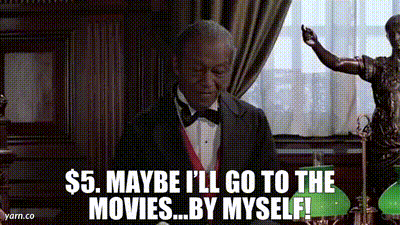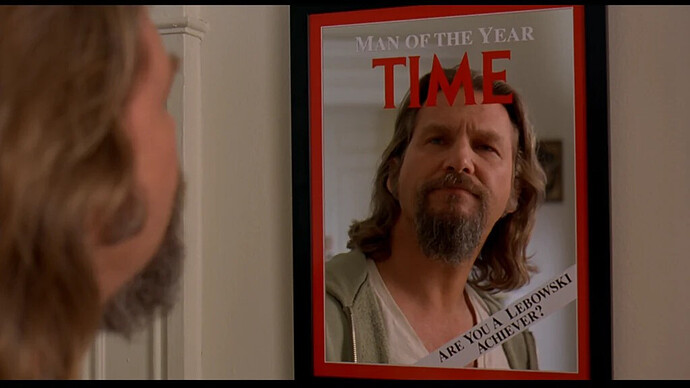My wife did this academic journal editing stuff for a few years. She also found it to be challenging for the same reasons.
Yeah, it’s funny how everyone lauds peer review as some sort of impartial arbiter of scientific truth. But it’s random as fuck. I’ve had a chance to do the editor thing, but it was a lesser journal, and my biggest problem was finding competent reviewers who were willing to review a paper.
On top of all this reviews are also based on reputation. When I used to review papers I usually knew which groups were putting out good research in the field and I was way more likely to give a good review to them than to some random group from a university I’ve never heard of.
I also started mailing it in with the reviews after a while because who has 4 hours to thoroughly review a paper with everything else going on? 90% of the time I probably had already made up my mind on the review outcome after reading the introduction.
I was probably a nightmare for the editors who sent papers to me, but somehow I kept getting assigned in a couple of B+ level journals. Maybe they just had no other recourse.
On top of all this reviews are also based on reputation. When I used to review papers I usually knew which groups were putting out good research in the field and I was way more likely to give a good review to them than to some random group from a university I’ve never heard of.
They have actually done research on this where they compared reviews blinded to authors with unblinded ones. I read one paper long ago which showed no difference. Maybe there are some newer ones out.
I didn’t know there had been studies on this, maybe I was just biased when reviewing papers. I don’t think I was a particularly good reviewer, but from seeing other people’s reviews of papers I reviewed or the ones I wrote, I don’t think I was outside of the norm either.
My personal experience in medical technology was that some groups would take a hold of editor boards of a few key journals/conferences, and you’d see them present their work over and over again. This led to increased funding from NIH, and it would be a reinforcing cycle. Some of those groups were doing great work, and others not so much, but you wouldn’t believe that from the academic output.
I didn’t know there had been studies on this, maybe I was just biased when reviewing papers. I don’t think I was a particularly good reviewer, but from seeing other people’s reviews of papers I reviewed or the ones I wrote, I don’t think I was outside of the norm either.
It’s funny. I met someone last week and we had literally the same conversation. He was saying how he just reviewed a paper and when he saw the senior author, he just auto-assumed it was good (which he then confirmed after reading it).
I’m not sure he believed that there is no difference. I’m not sure I do either.
I also discussed this with a friend a long time ago who, like spidercrab, is kind of a big deal. He hypothesized that once people get very famous, other people become jealous and become hypercritical out of spite. So in cases like that not knowing the author helps the author. But even if that is true, then it’s not really a case of the reviewer being unbiased, what’s happening is that biases are strong but canceling each other out. That’s not good and I think a strong argument for blinded reviews.
What makes this especially frustrating for an author is that tenure decisions can easily be influenced by the outcome of a single paper. And the outcome of that single paper can be very, very… not random, but maybe arbitrary? Like, I might think that person X and person Y would be the two most appropriate reviewers for a paper. But if they already have a review outstanding, I go to person M and person N. That shift very possible could be the difference between a paper getting accepted and getting rejected. Wild stuff.
A lot of life is like this.
who, like spidercrab, is kind of a big deal.
lol no
Is anyone else here following the anticipated Microsoft Copilot launch? This looks like it could make work A LOT easier for those of us that use Microsoft Office for 80% of our jobs.
Man we thought that Millenials and Gen Z had it bad economically, just wait until Gen After-Z hits the workforce and there are no more entry level jobs at all because they’re all AI’d.
At work we had a generative AI brainstorm earlier this week and it ended up looking like a list of tasks that brand new people take on as they get their feet wet. Meeting minutes, prep PowerPoints, develop outlines and rough drafts, conduct market research… Lots of things that I think Copilot promises.
I get that in theory it frees people up to focus on more valuable tasks (or frees up time) but I assume that in reality it will just end up fucking the next generation over, reducing their ability to pick up knowledge and expertise due to a reduction in opportunities.
Yeah, there is some of that for sure. My team is even talking about it in terms like “this is a 24/7 digital intern that you carry around in your pocket”.
I dont think its hopeless for new hires but its going to amplify the value of thinking and greatly reduce the value of executing simple tasks. For some people that’s a huge win. For others its a death sentence in the workplace.
There are many good aspects to my job, but some time during the summer we get our annual salary letters, and it’s more than a bit depressing to see something like the following:
Our annual raise pool is 3%. Based on the performance rating communicated to you earlier, your compensation will increase as follows:
Substantially beyond expectations: +3.25%
Beyond expectations: +3%
Meets expectations: +2.75%
Slightly below expectations: +2.5%
Significantly below expectations: +1%
[You’re more or less guaranteed at least “Slightly below expectations” unless you show up to work drunk each day AND significantly damage some expensive equipment AND violate FERPA.]
So the reward to working incredibly hard vs. just absolutely coasting is a 0.75% difference in salary. Super motivating.

I’m about to find out if blacklisting is a real thing (or maybe I just did).
Reached out to an old colleague about a position at their company. Five years ago I pursued a role there, with a different team, accepted an offer, but then declined when my employer at the time made an incredibly compelling counter (nearly 2x what I had just accepted, considering all components).
The former colleague was kind enough to forward my bio and resumé to the hiring manager and recruiter. I then get an email, “Hey quick question - did you ever receive an offer here? One of the HR folks thought your name looked familiar from having received an offer in the past.” Ugh. I immediately felt shitty about potentially putting the colleague in a bad spot, but this was honestly not top of mind at all because it was so long ago.
I’ve always personally had a clean conscience about how things went down at the time. While it was a very difficult decision, I didn’t proactively use an offer to negotiate a counter - I resigned, and I didn’t expect a counter to be presented. I didn’t ghost anybody on the other side; I called the hiring manager immediately to explain the situation and how I had to now decline the offer as the best thing for my family.
If this all puts me on some blacklist years later for jobs that I’m qualified to at least be part of the process, that says more about them than me, IMO. But it still sucks.
ETA: For further irony, the role I reneged on was eliminated 14 months later when COVID hit. But of course, that’s just business!
The former colleague was kind enough to forward my bio and resumé to the hiring manager and recruiter. I then get an email, “Hey quick question - did you ever receive an offer here? One of the HR folks thought your name looked familiar from having received an offer in the past.” Ugh. I immediately felt shitty about potentially putting the colleague in a bad spot, but this was honestly not top of mind at all because it was so long ago.
was this email from the hiring manager, your friend, or the recruiter?
As you mentioned, if HR does put the kibosh on you, it definitely says more about the company than you. If I get a referral from a cow-orker I value that about 200x more than some dipshit in HR being butthurt about something from eons ago. As a general rule I will always give a call to anyone that is referred to me anyway, and if this hiring manager doesn’t because of an HR beef that says a lot about the hiring manager as well.
was this email from the hiring manager, your friend, or the recruiter?
The email to me came from my friend. As if she had gotten something from the recruiter about recognizing my name, and why.
Edit: maybe I got myself worked up unnecessarily about it. A recruiter (not the same person I worked with 5 years ago) reached out today to find time to discuss the role.
Just reviewed a resume that listed Time person of the year (2006) as an accomplishment. Next!
I wanted to post a book recommendation here, partly because I’m super behind on the book thread, but mainly because it’s a memoir book written by someone with decade of experience working in Amazon management:
Exit Interview: The Life and Death of My Ambitious Career
https://www.amazon.com/Exit-Interview-Death-Ambitious-Career/dp/0374600902
It doesn’t exactly document Amazon’s middle years (say, 2005-2015), but this is one person’s story about working in a variety of management positions there, and Amazon’s culture and practices seep through all of her stories. So you do pick up a good amount of background information about some of the things that may or may not have made Amazon so successful.
A couple of other notes:
- This is a really well-written book; it was a real pleasure to read. This author has another book that I’ve read (Nothing Good Can Come from This) about her addiction and sobriety path that is equally good and that I also highly recommend.
- A lot of this book is about this author’s experience as a woman in management, and how her gender affected her experiences there. Obviously I don’t have personal experience with that point of view, reading about it was pretty eye-opening for me. My guess is that women might find this book particularly interesting and relatable, but that’s just a guess.
Twitter and TikTok listed as technical skills JFC
